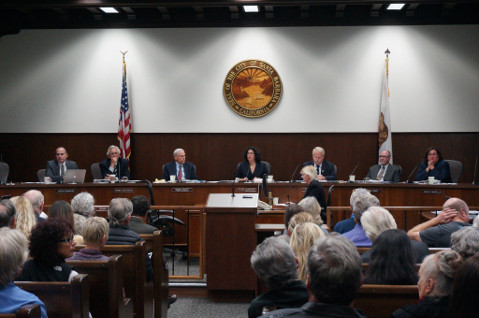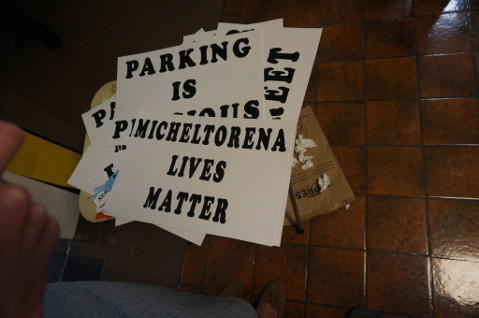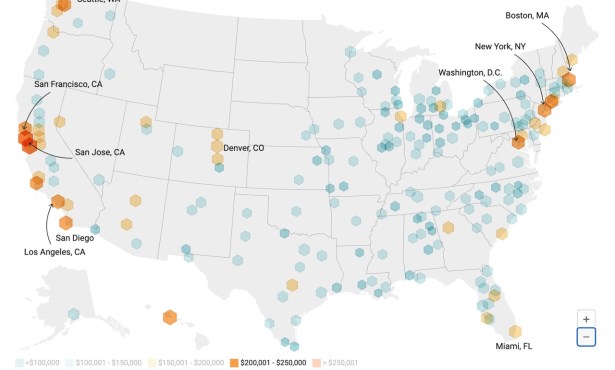Thoughts About the Bicycle Master Plan
Process Is Civil, but Rude Online

By a 5-2 vote, the Santa Barbara City Council at a February meeting tentatively approved the new Bicycle Master Plan. Unfortunately, the public meetings, shouting, dueling letters to the editor, and divisive discourse are not over. On March 15, facing the threat of a lawsuit based on CEQA issues, council sent the plan back to the Transportation and Circulation Committee and the Planning Commission for further review before a final vote in the summer. [CEQA stands for the California Environmental Quality Act.]
Three interrelated thoughts have been on my mind during this yearlong process: who the new BMP is for, the public dialogue during the review process, and finally our resistance to change.

Two primary goals of the Bicycle Master Plan are to increase access and safety for Santa Barbara cyclists. No one supporting the BMP wants people who choose not to bike to become cyclists. Nor is the plan intended to increase the number of bike commuters between Lompoc and Santa Barbara or to require everyone to go shopping at Ralph’s and lug 10 bags of groceries home on their bike. The plan is for those Santa Barbara residents who choose to bike to work, school, recreation, and shop, or to visit friends.
The plan is intended to encourage your friends and neighbors who have bikes in the garage and seldom ride because they feel unsafe riding on our streets. They are not confident biking in vehicular traffic alone or with their children. Surveys say that these individuals and families would ride to the beach, go to State Street for a frozen yogurt, or to dance classes or the library if our streets were more accessible.
Frequently during the debate about the Micheltorena Street bike lanes, alternative routes were proposed. Many cyclists are comfortable using the alternative east-west cross streets such as Sola, Victoria, or Anapamu. However, the lack of traffic lights on Sola, if it were a designated bike route, is a major concern. Maybe not for confident cyclists, but I rode that route multiple times recently. Crossing the two lanes of fast-moving one-way traffic at De la Vina and Chapala can be a challenge. For a kid riding to school, a father riding with children, or an elderly cyclist, it would be more than a challenge; it would be dangerous.
Safety is more complex. Reducing accidents involves creating safe routes, educating cyclists and motorists, increasing safety awareness, encouraging the use of helmets, and lights and enforcement. The BMP includes all those elements as goals. Achieving them will take time.
I attended the marathon February 22 City Council meeting. Almost 200 people filled council chambers and several overflow rooms. It was a historical moment, and the audience, as well as 90 pro and con speakers, were passionate about their positions but respectful of the council and each other. Many spoke eloquently from both the head and heart. I was proud at that moment that Santa Barbara could engage in a conversation about a highly contentious and difficult issue without anger and name-calling. We can discuss, debate, and be civil at the same time.
Sadly, my joy was crushed over the following days as I read comments about the meeting in our Internet news sources. Far too many of the comments were filled with distorted facts, disrespect, name-calling, and ugly personal attacks. Being anonymous online does not mean that you may write whatever comes into your head.

I grew up in an era where our best and brightest went into politics because they cared about their neighbors, their hometown, stateo and country. They served. We disagreed. But even when we disagreed about policy or implementation, personal insults and degradation were beyond the pale. Not anymore.
Here’s my challenge. Before you put pen to paper or dash off your thoughts electronically, sign up as a volunteer on one of the many short-handed nonprofit or civic boards, committees, or commissions that serve our city. You’ll spend hours reading documents, preparing for meetings, listening to public comment, and agonizing over difficult decisions. I serve on the First Five Advisory Board. They are my most challenging hours and the most satisfying.
Finally, change is difficult. You can’t plan for the future without looking at the impact of change, today. The Bicycle Master Plan will have an impact on people’s lives and daily habits. It is the responsibility of good governance to recognize that progress must occur and that planners must do all they can to respond to the natural resistance by making the transition as smooth as possible.
Resistance is not new. At the dawning of the age of cars, horse and buggy culture was opposed to the new era. In Pennsylvania a law required any motorist who sights a team of horses coming toward him to pull well off the road, cover his car with a blanket that blends with the countryside, and let the horses pass. If the horses appear skittish, the motorist must take his car apart and hide it under the nearest bushes. Small towns also passed laws that required a motorist to notify a constable, who would walk in front of the car waving two red warning flags while the driver followed slowly behind.
I moved to Pittsburgh when it was still the greatest steel city in the world. At night we used to sit on the hillsides overlooking the Monongahela River and watch trainloads of red-hot ingots being transported across the river to the rolling mills. The mills employed thousands. In the ’80s the steel industry collapsed. It was not just a long layoff. When I return to Pittsburgh and the Monongahela mill towns, there are still guys glued to a bar stool, waiting for the mills to come back. Resistance to change is strong in the Mon Valley.
Progress will always be hard. You can’t time travel back to a simpler more comfortable era. When I was young my grandfather always used to tell me, “It’s your America.” Santa Barbara is a great place to live, work, and raise a family. Over the next few months, hard decisions that seemingly pit the needs of one group against another will be made. Let’s do it with both passion and civil discourse.


